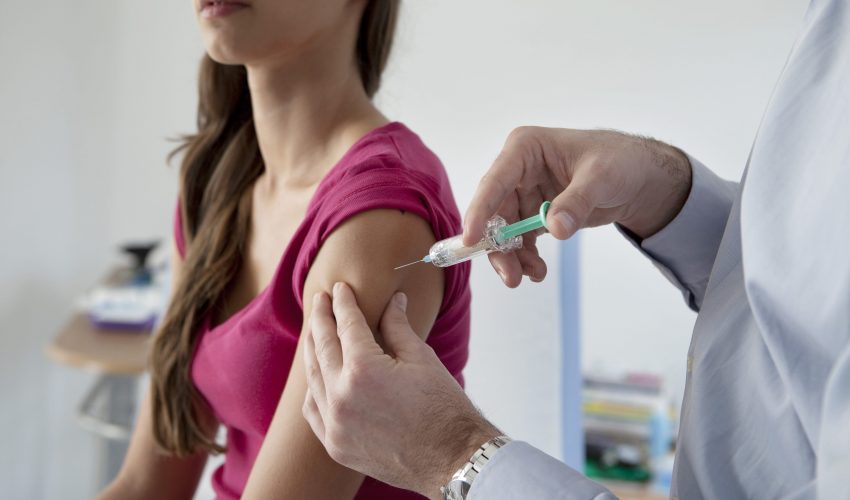Post Views: 1,927
Views No Comments
During flu season, immunizations and vaccines are usually a hot topic among patients and healthcare personnel. While some may be against them while others are positive that they can help, it’s important for nurses to education and spread awareness on the importance of vaccinations. However, sometimes, it can be hard to deal with a family who is completely against their child having vaccinations, like the flu shot or HPV.
Here are a few ways to help a nurse overcome those difficulties, and also a further understanding of why vaccinations are critical for a patient’s overall health.
Understanding the Obstacles to Vaccination:
Yes, of course, several of diseases that had been killing or sickening people in the past decades have faded from the scene today. This is especially true with developed countries like the U.S. In the developed nations, immunizations have been so successful in completely eradicating or at least controlling infections. But recently, because of some rumors, there have been anti-vaccine sentiments making rounds. It has been reported that some parents do not want to get their children vaccinated. This possesses a serious threat to the country as infections that were thought to be completely eradicated can make a comeback.
Besides the above-mentioned concerns over safety and beliefs, there can be some other things that stop patients from getting immunizations. For instance, low-income generating families will not be able to access high-quality healthcare and/or adequate education. So, nurses should spend adequate time with those people who are hesitant to receive vaccinations in an attempt to understand their obstacles and discuss the options for vaccination along with their significance.
Properly Communicating the Information:
Some of the recent surveys suggest that less than 74% of parents believe the vaccination advice provided by their healthcare professionals. Being a nurse means that you are obviously on the front line of communication for the patients and so, you have an important role to play in offering advice and direction for the parental decisions about a child’s immunizations. This makes it important for the nursing professional to equip themselves about current vaccination news, safety concerns, and recent research supporting the advantages of properly following the vaccination schedules.
Unavoidably, nurses will face various questions from patients regarding the safety of vaccinations. In order to deal with these situations effectively, it’s important for nurses to have adequate fact-based knowledge about the subject. To help nurses in this, there is one useful resource called the “Safety Review Reports” from the Institute of Medicine. Here, it doesn’t mean that nurses’ answers should be full of facts and data. They should, instead, adapt their answers according to the kinds of questions they receive from patients.
Ensuring Safety:
Another important role for nurses with regards to immunizations is to ensure safety. Nurses must be knowledgeable about safe handling, as well as proper administration. They should remember that stricter storage procedures should be followed in order to maintain the efficacy of immunizations. They should strictly adhere to proper storage temperatures and should have a keen eye on expiration dates. Besides these, they should also be apprised of updated information with respect to vaccine administration. In order to prevent any adverse reactions, nurses should pay attention to the appropriate method of administration, IM vs. subcutaneous, and so on. Finally, nurses should not ignore the precautionary steps. For example, a proper screening procedure must be followed to learn about the patients’ contraindications, such as an egg allergy. For more information on the contraindications, check the CDC Guide.
Carrying out a Proper Follow-Up:
The role of nurses in immunization doesn’t end with providing immunizations. A nurse, who is responsible for administering a vaccine to a patient, must also be knowledgeable in identifying and managing anaphylaxis. Today, the clinical atmosphere has changed and it could be alluring to allow efficacy and volume to affect the recommended vaccine administration. This could pose some issues for the patients receiving the immunization. Therefore, the CDC recommends that the patients receiving vaccinations should be kept in observation for a minimum of fifteen minutes after vaccine administration.
Continuing Education:
No matter what time of the year, nurses must make it their practice to review their organization’s vaccine administration procedures and make sure that all the information is current and accurate. Nurses should utilize the communication toolkits that are released by the CDC. These communication toolkits can be downloaded and used for promoting vaccine awareness in several different ways. Finally, nurses should not forget to stay current with their own vaccination schedules. They should check their own schedules and make sure they are receiving their vaccinations (anything if pending).
During flu season, immunizations and vaccines are usually a hot topic among patients and healthcare personnel. While some may be against them while others are positive that they can help, it’s important for nurses to education and spread awareness on the importance of vaccinations. Read on to learn more about why vaccinations are critical for patients.

